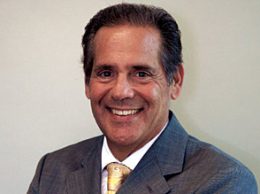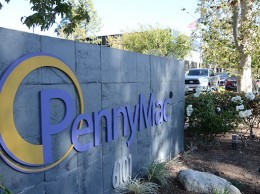Dubroff: Mozilo is in denial, government grabs for cash and we pay the bill

Henry Dubroff
An unrepentant Angelo Mozilo remains a key figure at the center of the housing collapse and financial crisis.
Interviewed by Bloomberg News from his home in Montecito in early September, the former Countrywide Financial Corp. Chairman said he had no regrets about the wild ride that transformed the Calabasas firm from a small mortgage company to the dominant player in subprime home lending, before it was sold under heavy duress to Bank of America.
The blunt 75-year-old, known for swearing a blue streak on the golf course, said that these days he’s hitting the links less often, teaching a bit in Italy and working on investing some of the estimated $500 million he extracted from Countrywide before its near collapse and sale to Bank of America in 2008.
“We didn’t do anything wrong,” he told reporters, saying the government was simply going after Countrywide because it was so big.
So far, the government has extracted a huge toll from Countrywide’s alleged misdeeds in marketing and packaging faulty mortgages and selling them to investors.
Bank of America has paid something like $61 billion in fines and penalties related to illegal activities at Countrywide, Merrill Lynch, which it acquired later on, and other operations. Why Bank of America did not indemnify itself agains Countrywide’s potential claims remains a mystery. But Mozilo himself settled with the U.S. Securities and Exchange Commission for $67.5 million and agreed to a lifetime ban from serving on a public company board.
Another, perhaps final, shoe will likely drop shortly when the Department of Justice, as reported by Bloomberg and others, goes to court in Los Angeles to seek additional civil penalties against Mozilo and possibly others.
The problem with all of this is that America’s biggest businesses, once revered the world over for their intelligence and management skills, are more and more looking like giant protection rackets.
They do big things wrong, the government socks them with huge penalties, settlements are announced and the costs are passed back along to consumers. Nobody ever learns any lessons, nobody gets to trade pinstripes for an orange jumpsuit, and the costs of litigation and settlement are passed back along to consumers. The Economist, in a timely cover story, warns of the dangers of this revolving door of cash for trashy behavior by corporate titans.
It’s wrong for Mozilo to be in total denial about Countrywide’s role in fueling the housing bubble. The company originated hundreds of billions of dollars in loans, and its Simi Valley center was servicing some $1.5 trillion in mortgages when the company was sold. I heard Mozilo speak at a conference in Los Angeles about the coming difficulties facing housing at the same time his company was packaging mortgages that were doomed to fail for investors — and getting AAA ratings on the securities.
His “friends of Angelo” special mortgage programs gave the appearance of a conflict-of-interest with some influential Congressional leaders at the time when the heat should have been turned up. Meanwhile between investment banks, ratings agencies and originators such as Countrywide got rich off convincing naive homeowners they could finance literally anything for top dollar whether or not they could afford to pay off their lines.
The bottom line is that extracting more money from the estimated $500 million that Mozilo cashed out over a decade or so might help the government run up the score and dominate a part of a news cycle. But it doesn’t resolve the fundamental problem of how to fix bad behavior by big corporations and how to deflate bubbles that trigger financial-system failures.
Holding Mozilo accountable is one thing. But thinking that collecting a few million dollars will solve America’s problem with bad behavior is an illusion. It simply guarantees that the next crisis will carry a much bigger price-tag.
• Contact Henry Dubroff at [email protected].












